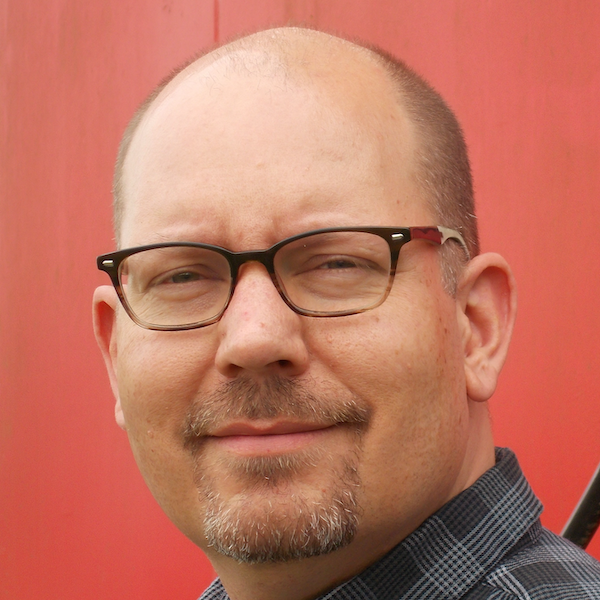
Today’s post is by author Matthew Duffus (@DuffusMatthew).
When I finished my MFA in 2005, I didn’t write for a year. Between exhaustion from completing a readable draft of a novel on deadline and the confusion caused by having too many critical voices in my head (thanks, workshop), I didn’t know where to begin, let alone how to get to The End of something. I’d burned out on my thesis, realizing it would be my “novel in the drawer,” and had no idea what to do next. After the first few maddening weeks, I tried embracing Richard Ford’s concept of “refilling the well.” When this stopped working, I knew I needed to try something new.
Below are three steps that helped me start writing again after those long months away from the page.
1. Set a challenge
No, I don’t mean NaNoWriMo. Had I known about that event in 2005, I would have crawled into bed and not come out until December 1st. Instead, I set a reading challenge. Like many creative writing programs, mine had focused on contemporary work, so for this challenge I went back to the beginning of the English novel and read through the major writers until I was prepared to start writing again. I read Moll Flanders and Robinson Crusoe, Pamela and an abridged Clarissa. I read Tristram Shandy and… you get the point. I didn’t stop until I’d read through much of Virginia Woolf and was eager to write. But my old writerly patterns were no longer helpful. I needed fresh ideas, both for what to write and how to do it.
2. Start small
The first thing inhibiting my writing was believing I should know exactly what I wanted to do next and how to accomplish it. When I spoke to former classmates, they all seemed to have a plan for what they were working on. For me, a plan was too daunting. Having one would have meant thinking at the level of a book. I needed to focus on lower stakes, so I concentrated on something smaller, both literally and figuratively. Instead of aiming for 1,000 words per day, as I’d done in grad school, I bought a pack of three-by-five index cards and numbered the first thirty. I filled the lined side of one index card per day for the next month. By the end of that period, I had the beginnings of a longer piece that I was already dedicated to pursuing further. Call it my micro NaNoWriMo.
When I began this project, I had no idea what to write, no preconceived ideas or plot outline, so I focused on creating a strong first-person voice, index card by index card. I started with where I was in life: an apartment caretaker and struggling writer. The day before I reached for the first index card, I’d been dealing with a resident’s plumbing emergency, so I began there. Over the next few days, this voice revealed he was a failed lawyer, having never passed the bar, and was stuck in a long-term engagement with no wedding date in sight. By the end of the second week, I’d discovered his fiancée and her friends and several suitably quirky tenants. I was off and running.
3. Try a new style
Focusing on one notecard per day forced me to slow down in a way I hadn’t done when I was obsessed with hitting my word quota for the day. I made the decision to write in first person, because I figured the “I” would propel me forward and allow me to gain momentum more quickly. In the past, I’d been known for what were dismissed as “quiet” stories, so this time I decided to go loud. I channeled Laurence Sterne, from my reading challenge, and Stanley Elkin, who I’d read in a class during my MFA. I wrote long, circuitous sentences that stacked metaphor on metaphor, clause on clause, and often did not end when I ran out of space on my card. By the third week, I began staring at the blank cards on my desk, wondering if it would be okay to start a second card just this once. I resisted the urge, but that desire indicated that I was having fun writing again.
This manuscript isn’t one I’ve pursued publishing. For more than fifteen years, I’ve treated it as my fallback plan. Something about knowing it’s saved in Dropbox is reassuring. I’ve added and subtracted enough words for several novels over the years, but in the meantime, I’ve published a different novel, a collection of stories, a chapbook of poems, and many shorter works, both in print and online. But the next time I feel stuck, I know I’ll start hunting for more index cards.

Matthew Duffus (@DuffusMatthew) is the author of the novel Swapping Purples for Yellows, the collection Dunbar’s Folly and Other Stories, and the poetry chapbook Problems of the Soul and Otherwise. He works as Writing Center Director at Earlham College in Richmond, Indiana. Details about his book coaching and editing services are available at his website, matthewduffus.com.

I love the simplicity of this plan! I definitely need to find my love of writing again.
Excellent suggestions and completely different from what others have offered on the subject.
I’m working with a group of seniors locally, most of whom have never written anything before, and we’re all having great fun exploring writing prompts. For most of my life, I hadn’t really considered prompts because I rarely had nothing to write about, but in recent years I’ve played with them now and then and not only have had fun with them but also have found that they reveal far more than one would suspect. I find that they “cleanse the palate.” Whether a writer takes a prompt further or not doesn’t matter – the idea is, as you say, to have fun and find joy in the creativity.
Just because we are driven to write doesn’t mean it has to be drudgery.
As writers we often become mired when a work is completed – or almost completed – so good advice from Matthew. Whatever gets the ink flowing again (real or metaphorical) can only be helpful.
Resurrecting. Thanks, Matthew.
What good ideas for MFA recovery. Especially the first, reading one.
I read Moll Flanders in college many years ago. My college had a trisemester system – the month of January was one course but the busiest one for me. I had to read at least 100 pages a day, and pop quizzes were a thing.
I love the concept of going small. I recently started reading Priscilla Long’s The Writer’s Portable Mentor. She advocates writing for 15 minutes a day on anything.
Sounds like you are on your way.
Really like the index cards and trying. I am so stuck after publishing a YA novel with a small press I’m reading with 2 book clubs but need to read some classics. Thanks for article.